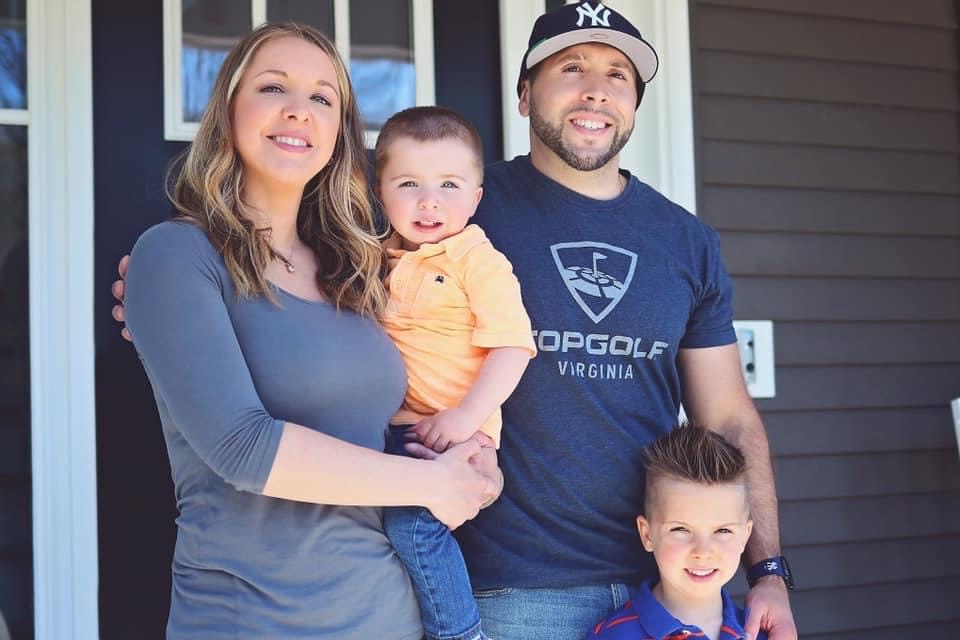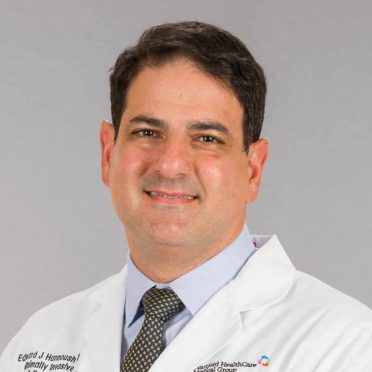Eric Crane is an active, fit husband and father of two young children, living a pretty normal life in Plainville. But there was nothing normal about twice yearly trips to the Emergency Department for severe chest pains and all the symptoms of a heart attack.
Doubled over and immobilized in pain, Eric would experience chest pains, upper abdomen pain, numbness, pain in his left arm and uncontrollable sweating. Yet when examined, doctors had no answers. Nothing pointed to a cardiac issue.
After an ED doctor suggested that maybe the trouble was gastric, Eric sought out a consult with a gastrointestinal specialist. Tests and treatments yielded no relief or conclusive answer. Eric was frustrated.
“I was on a course of Nexium and Pepcid for over a year, and my body didn’t handle it well,” he said. “I was a new dad and it was really hard to keep up with my family. I was very fatigued and often I was in bed by 7 pm. I didn’t feel well at all.”
After telling his doctor that he didn’t want to be on medication anymore, Eric was referred to Dr. Edward Hannoush. After diagnosing Eric with a hiatal hernia and acid reflux, Dr. Hannoush noted that while the hernia was quite small, surgery and the LINX device might bring some relief.
In August 2019, Eric’s hernia was repaired and the LINX device was inserted to control Eric’s acid reflux. The LINX device strengthens the lower esophageal sphincter, providing a barrier to the acid. It consists of a small ring of magnetic titanium beads wrapped around the connection between the stomach and esophagus. The ring opens when swallowing, allowing liquids and food to pass normally into the stomach. It closes again quickly, preventing acid and bile from entering the esophagus.
In a surgery that lasted less than 2 hours, Dr. Hannoush repaired the hiatal hernia and inserted the LINX device via five incisions. Eric reports the post-surgical pain was not intense as compared to the discomfort he endured before surgery.
“I started feeling 100 percent pretty quickly,” Eric said. “After following the strict guidelines after surgery, I was able to eat or drink in moderation. I’m now following the regime of a healthy diet, which I view as exercise – it’s so important to my wellbeing.”
Eric can’t say enough about the improvement in his quality of life.
“I’m still on a pretty strict diet, and moderation is key,” he says. “I can work more effectively, stay up later at night and I have no anxiety about another attack. It has positively impacted my entire family. I can keep up with my kids and my wife doesn’t have to deal with the stress of seeing me suffer.”



